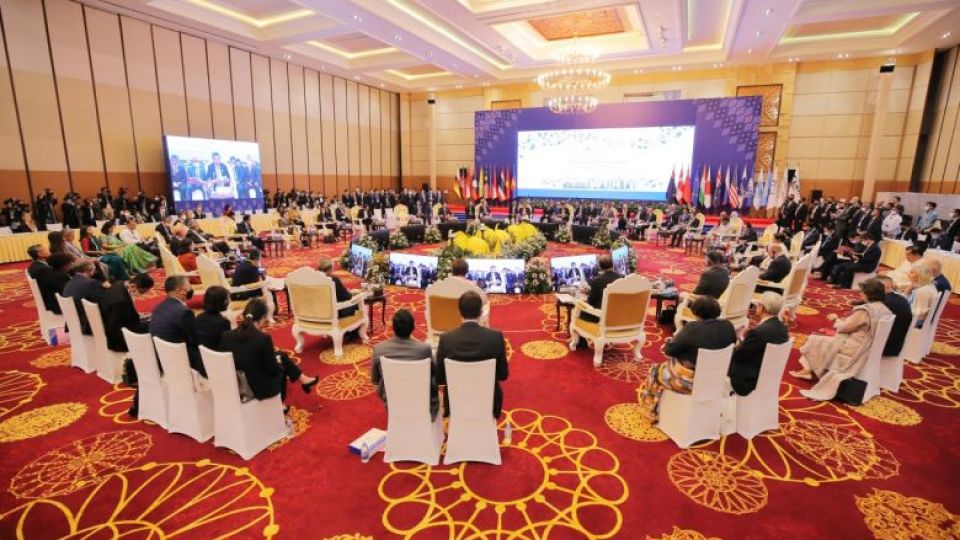November 15, 2022
PHNOM PENH – ASEAN member states have yet to reach a consensus on the issue surrounding the Russia-Ukraine conflict, with some of them rejecting a request by Ukrainian President Volodymyr Zelensky to deliver a video statement at the November 10-13 ASEAN Summit in Phnom Penh over the ongoing war, local analysts said.
Independent political observers believe that the varying diplomatic stance of ASEAN member nations over the crisis was due to some nations having closer relationships with Russia than others.
Van Bunna, a researcher at the Cambodian Institute for Cooperation and Peace, said the bloc has yet to take a consistent stance on the issue because ASEAN mechanisms require an agreement by all members.
“If we look at legal and diplomatic mechanisms, Ukraine would not ordinarily have the right to address the ASEAN Summit and relevant meetings. There are exceptional circumstances, due to the seriousness of the conflict, but it boils down to a lack of consensus though some members want to give Ukraine the chance to speak,” he explained.
At a November 10 press conference, Kung Phoak – secretary of state at the Ministry of Foreign Affairs and International Cooperation and spokesperson for the ASEAN Summit – confirmed that there would be no special speech by the Ukrainian president at the summit as the country remains a guest of honour. He noted that Ukraine’s representatives may attend the official opening ceremony but could not attend the meetings.
Zelensky requested a special video address on the war situation in a telephone conversation with Prime Minister Hun Sen prior to the summit.
Bunna did not believe that the refusal to accept the proposal would have a large impact on the ASEAN regional community, though it may have some effects on the unity of the bloc’s member states. Not offering full support to Ukraine may have a negative effect on the international image of ASEAN, despite the war in Ukraine not being on the ASEAN agenda, he added.
Thong Meng David, a research fellow at the Asian Vision Institute’s Mekong Centre for Strategic Studies, said the refusal to accept Zelensky’s proposed address by some nations was motivated by their individual politics, strategies and economies.
“Due to political, strategic and economic interests, some countries have much closer relations with Russia than others,” he said.
He stressed that Ukraine needs the support of the international community and ASEAN should be an important partner for Ukraine to gather support towards finding a peaceful solution to the conflict, as well as assistance with the post-war reconstruction of Ukraine.
“ASEAN has become an important regulator for playing a central role in facilitating and encouraging the major powers to address the Ukraine crisis and related issues, such as the energy and food security crises as well as the global economic disruptions caused by the conflict,” he said.
On the positive side for Ukraine, ASEAN accepted the country as the 50th member of the Treaty of Amity and Cooperation in Southeast Asia (TAC). The treaty was signed by ASEAN leaders and Ukrainian foreign minister Dmytro Kuleba.
Seng Vanly, an international relations analyst, considered the signing a success for Ukraine, thanks to the facilitation of Cambodia as the chair of ASEAN, despite the bloc’s refusal to allow Zelensky’s video address.
As with other analysts, Vanly sees the need for consensus among ASEAN member states as a barrier.
“ASEAN requires unanimous agreement. Some countries have close ties to Russia. Others, even if not close, do not want to have any problems with the [nuclear] power,” he said.
Despite this, ASEAN and Ukraine have accomplished an important role in the war by recognising Ukraine as the 50th member of the TAC. The analysts saw this as a message to the international community that Cambodia in particular – and ASEAN in general – do not want to see interference in any nation’s internal affairs though they oppose to the invasion of one state by another.


